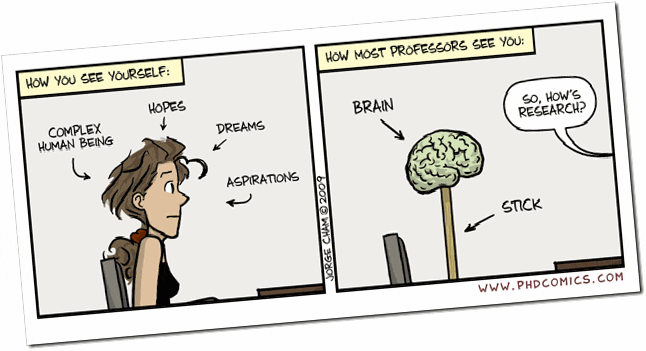Lessons learned from Ph.D qualifying exam

Sept. 29th, 2017 was the day that I passed my qualifying exam, while being judged by 7 committee members. I passed it with flying colors. But it wasn’t easy, actually it was not designed to be easy for anyone. For me, it was the uncertainty of the exam and unsatisfaction towards my current knowlege that made me anxious.
The first challenging task was to find a topic. At that time I had some understanding of the general topic of the lab but I was also aware that some of the most straightforward and interesting projects have already been carried out since this dataset has been around for 20 years. The low hanging fruits are all gone and the remaining are either too high to be reached for a beginner or too rare to be noticed. To find new ideas, I started to read lots of papers and tried to discuss with my advisor about thoughts that interest me. After two or three times I still feel clueless becuause it was either too broad to be tested or not innovative enough. One thing that inspired me was the conference I went to for presenting a side project I did, I learned the hot topics by listening to presentations. This made me realize scientific discussion is very important in forming ideas, thinking out loud makes one more alert on the practical and innovative aspect of the ideas.
I was very anxious since I scheduled my exam before my specific aims were ready. I know my committee members are extremely busy and it would be hard to find a time when 7 people could all be free, so I want to know when is the earliest date I could do it. As a side effect, I was in a great panic for 2 months after I scheduled it, knowing I would propose something about machine learning next month like an expert while taking my first machine learning class at the same time was very stressful. But I know what I need from taking this class is not an A or to understand everything but to find a method that could solve the question that I propose. It would be impractical to understand every detail in all fields of machine learning, but it is possible just to know the key concept and reasons of using some of the methods, which is what I did. I gave up both weekends for 2 months and I worked 12 hours a day hoping what I understood from learning is right and the method I chose is representative and a good solution of my thesis. When I was in doubt about myself, I would watch the talks by Elon Musk or Jack Ma who actually did way more crazier things than what I’ve been doing, and I believe they survived with no teacher telling them how, therefore I believe I could also survive from my challenge in the same sense (except that my challenge is very insignificant compared with theirs).
In terms of the real presentation, practice makes perfect. My exam consisted of a 12 page written proposal and a 2 hour Q & A presentation. On one hand, practice helps you to be familar to your talk and so that you can flexibley improvise according to the questions; on the other hand, practice is not just to repeat it everyday but to find out what can be improved. Think about the teacher whose lecture that is hard to follow in class, most of the time the way of presenting it matters sigificantly. Unclear presentations are hard to follow and this will create more and more questions for the comittee to ask and feel skeptical about how much you really understand. I was very lucky to have a mentor, friends and a husband who listened to my talk attentively multiple times and gave suggestions each time. As time went by, it became clear to me what level of detail and clarity I need for the general audience to understand, and that’s what effectively the committee members are. No one is expected to know all of my proposal, but my job is to let everyone understand using the simplist way possible.
Right now I’m so glad that one of the milestones in my Ph. D is finally over, but there is a lot more to do as a scientist. While passing qualifying exam is just a form of recognition gained from senior scientists in the community, there are many more yet to come.